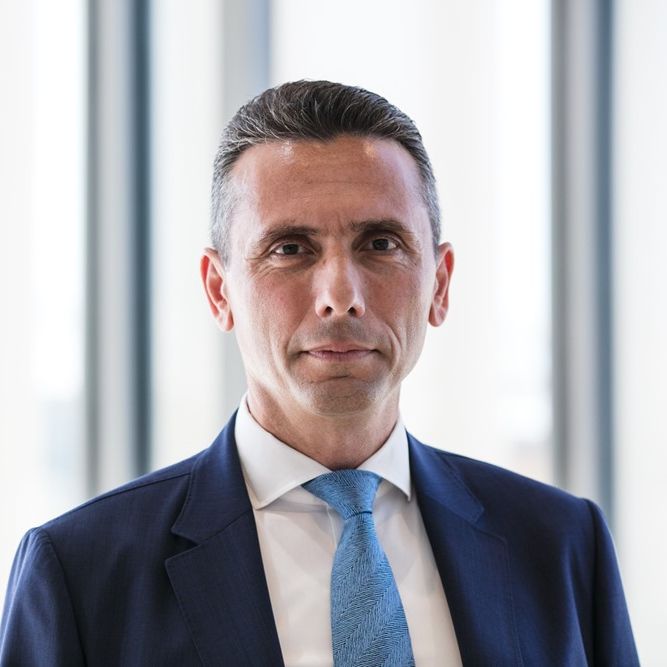
Christos Harpantidis is the Vice President of Philip Morris International for South-East
Europe, responsible for 12 countries (Greece, Cyprus, Malta, Romania, Bulgaria, Serbia,
Albania & Kosovo, North Macedonia, Bosnia-Herzegovina, Montenegro, Croatia and
Slovenia).
Born in Thessaloniki in 1970, Christos studied Physics at the Aristotle University while he
continued his studies in the United Kingdom getting his Master’s degree in Economics (MA)
and Business Administration (MBA) from Kent University. Christos has also completed
executive education programs at Stanford and Duke Universities.
He started his career in 1997, as Marketing & Sales Trainee at Coca-Cola Hellenic. In 2003, Christos became a member of Papastratos' family, taking on responsibility of key positions in the company's commercial department in Greece and abroad. From 2012 to 2015, he was based at the Philip Morris International Operations Center in Lausanne, Switzerland, holding senior management positions in the Sales Strategy department and then in the Commercialization of New Generation Products.
In August 2015, Christos was assigned to the position of Chairman and Managing Director of Papastratos and Head of the EU South East Cluster (Greece, Romania, Bulgaria, Slovenia, Croatia, Cyprus, Malta) of Philip Morris International.
From 2017 to 2022, with a vision of a smoke-free future, he led a € 500 million investment
that turned Papastratos' facilities into a major production and export center of PMI&'s innovative tobacco products. In the process, he transformed Greece's leading tobacco industry to a world-leading technology company.
In 2023, Christos took on the role of Vice President for South-East Europe aiming to
accelerate the region’s journey towards a smoke-free future.
Thursday 12
15.05 - 16.00
Will 2024 mark the return of the Stability & Growth pact and what does it mean for South Europe?
Sofitel Brussels Europe
A necessity during the pandemic and the energy crisis, the general escape clause of the EU Stability and Growth Pact is likely to be deactivated at the end of 2023. Is the European economy ready to return to fiscal discipline? How does such an event influence the debt-sensitive economies of Southern Europe?